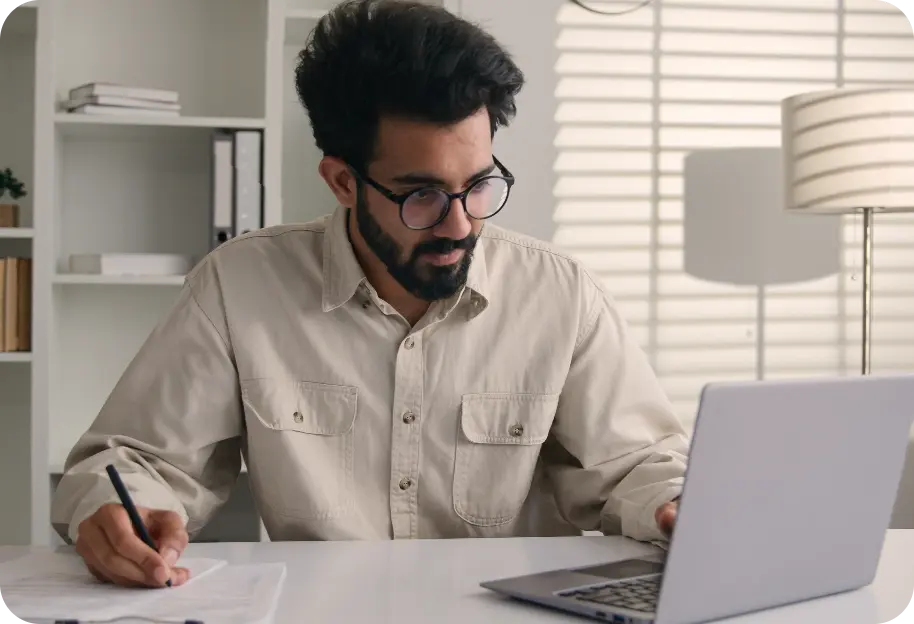French Classes with Native French Tutors
Our native-speaking qualified French teachers can guide you and your group at your work or home at whatever time is most convenient for you. Our French lessons can take place on any day of the week -even weekends-, whether it’s morning, afternoon or evening. If meeting at your office or home is not suitable, you can take your lessons at the trainer’s office. A suitable, up-to-date course book will be recommended by the teacher.

Language Trainers organizes French courses in almost any destination!

Switch between online and face-to-face French classes with a hybrid course!
Choose French tutoring online, face-to-face, or a combination of both. As you progress, you have the flexibility to modify the mix of virtual and face-to-face learning to align with your personal preferences and timetable.
Some of our popular French Tutors

Pauline
Pauline
- Language Taught: French
- Years of teaching experience: 7
- Speaks French, Italian, Norwegian, Spanish.
Pauline is a dynamic online French teacher with over 6 years of experience teaching adults and children in classrooms and one-on-one. Committed to fostering an inclusive and engaging learning environment, she encourages students to think critically and creatively. Passionate about lifelong learning, she adapts her methods to cater to diverse learning styles and needs.

Justine
Justine
- Language Taught: French
- Years of teaching experience: 10
- Speaks French, English, Mandarin, Spanish.
Justine, a Brisbane-based French tutor with over 10 years of experience, has taught in countries like Portugal, Peru, and China. Holding a master’s in teaching French as a foreign language, she creates a positive and communicative learning environment. Her engaging approach fosters confidence, making students feel supported and motivated in their language journey.

Nina
Nina
- Language Taught: French
- Years of teaching experience: 4
- Speaks French, English, Spanish.
An enthusiastic French tutor based in Sydney, Nina has taught levels A1 to C2 to learners of all ages and backgrounds. Known for her dynamic and attentive approach, she tailors lessons to meet individual goals. Passionate about teaching, Nina creates a supportive environment that fosters engagement and success.
Reviews Of Our French Courses

I enjoyed learning with my teacher. I liked the pace and content. She teaches patiently about the grammar and anything I didn't understand.

My first class was great! I look forward to learning more.
“Testez votre niveau de français”...
Test your French skills
33835 tests taken so far | Average score: 36 out of 70

How to Book Your French Lessons
Take our French Language Level Test.
Let us know why you need to learn French and include the time and location that best suit you.
Review our quote and, if you are happy with it, receive our invoice and Agreement form.
Sign our Agreement form and submit a deposit* for the course.
Receive confirmation from our team with your French tutor’s details.
Begin your French training and receive your French course book.
Throughout your French course, the Language Trainers Academic Team will be on hand to help you with any queries.

After the first lesson or two, our team will contact you to ensure you are happy with your trainer. If necessary, we will change the focus of the course to better suit your needs.
After finishing your course, we will send you a course attendance and completion certificate..
Our team will provide you with follow-up learning opportunities, including: self study material, language courses in French-speaking countries, and more advanced courses with Language Trainers.
* Your quote will include options for different packages of hours ; a typical course lasts 30 hours, with classes of 2 hours each for in-person and 1 hour each for online. Deposit payable by bank transfer, cheque, debit or credit card, or PayPal.
French for...
-
 Business
Business -
 Family & Relationships
Family & Relationships -
 Career & Professionals
Career & Professionals -
 Travel & Personal
Travel & Personal -
 Relocation
Relocation -
 Real Estate
Real Estate -
 Exam Preparation
Exam Preparation -
 Healthcare
Healthcare

Free French Learning Resources
Level tests, listening tests, foreign song, film and book reviews, course book reviews, games and trivia and more.
Preferred Supplier
Language Trainers is the preferred supplier for




